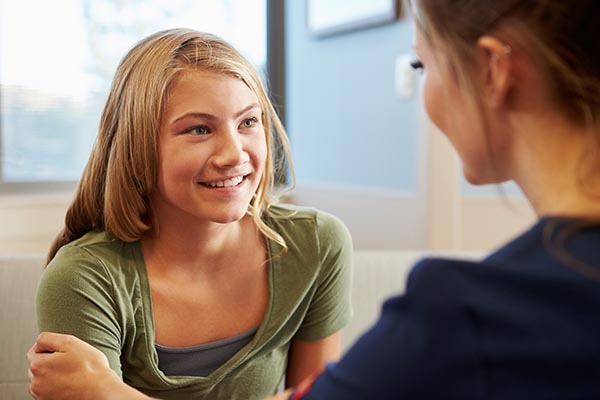When a child sits down with their counsellor and begins to talk about their feelings and problems, it can be the start of something that can change their life.
But it’s often a journey in itself to encourage that child to talk – and to help them realise that opening up about what they are going through may be beneficial to them.
“The really important thing is their own identity and their own goals. They need to own counselling for themselves,” said Edith Bell, a member of BACP’s Children, Young People and Families division executive.
“Children are often sent to counselling on the basis of someone else’s agenda. They have had their autonomy removed because someone else has made the decision that they need to see a counsellor.
It's about their choices
“Counselling has to be about their choices. Once we’ve got children to engage, it’s a win-win,” added Edith, who is director of counselling at Familyworks, in Northern Ireland.
Edith said that at the start her work is about making the child feel relaxed, explaining what is going to happen and exploring whether counselling is the right option for them.
Welcoming atmosphere
“I begin by creating a welcoming atmosphere and working to encourage curiosity in myself and a curiosity in the young person.”
“During the pre-assessment I don’t solicit a lot of information,” she added.
“I explain counselling hypothetically at first. I talk about what some people come here to discuss, the ways in which I help people.
Non-judgmental
“I’m non-judgmental about whether they are going to go through counselling at all.
“I begin to create a picture of what counselling is – and also manage their expectations.”
When the counselling sessions start, it’s not always sitting and talking that is first on the agenda.

“I begin by creating a welcome atmosphere and working to encourage curiosity in myself and a curiosity in the young person," said Edith Bell.
Choose an activity
“Sometimes we’ll do an activity. I’ve played computer games with young people before, sometimes it’s art or clay modelling.
"We'll talk about their interests, what they enjoy doing.
“Often while they’re doing the activity, they begin to feel more comfortable, and talk.
“We begin to identify concerns, interests and strengths," she added.
Actively listening
“As counsellors, we’re actively listening. Once they feel listened to, they can begin to explore what they are going through.”
Edith says sometimes she has to explain to her young client that it’s ok to talk about certain issues.
“Children often think that if they say something out loud, it will make something happen. I have to stress that these sessions are just us talking. Just because they say something, voice a fear, it doesn't mean it's going to happen."
The counselling sessions help give the young people the tools to cope in situations in their lives.
And to see the changes they make, can be incredibly rewarding for counsellors.
They have made the change for themselves
“It’s rewarding because you can celebrate the truth about that child, and that they have made the change for themselves.
“You don’t own the process, instead you help the young person achieve the confidence to go out into the real world.
“Some of the things you have supported them with when they were 15 or 16, well those things may come back to them 10, 15 years later, when they are in their 20s or 30s. It might be of help to them then too. That’s really exciting to know. When I am contacted again by adults who are doing really well years after I saw them, I’m absolutely made up for them.
“Seeing the short-term change in a child who has been through counselling is wonderful. Seeing a long-term change can be amazing.”
You can find a BACP counsellor or psychotherapist who specialises in children and young people via our Therapist directory.
